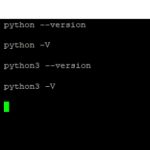Python is one of the most popular programming languages in the world, and it is no surprise that content management systems (CMS) have been developed to help developers build websites quickly and easily. CMS platforms are designed to provide developers with the tools necessary to manage content, making them invaluable resources for web development and content management. In this article, we’ll explore the 10 best Python CMS platforms and what makes them so special.
Table of Contents
Mezzanine

Mezzanine is less likely to disappoint. Not only is it powerful, but it also offers scalability and flexibility – it will prove constant as your project grows. It relies on the Django framework and comes with a solid community behind it for help and tips. Everything is intuitive and straightforward.
Plone
The open-source Plone is free of charge. You would not expect much from a free Python CMS, but it will surprise you. It is widely popular for intranets, but it is also used by all kinds of companies to maintain a solid web presence. It is made around the Zone app server.
Kotti
Kotti is easy to use and has a decent learning curve. It brings in a bunch of powerful features, but it is also lightweight on the system. It provides scalability through its extensible CMS solution. Some of its main features include security protection, hierarchical data, and essential workflows.
Djedi CMS
Djedi CMS brings in a powerful system and plenty of flexibility. You have loads of plugins to customize it accordingly, as well as in-line editing. Controlling the system is what makes it stand out in the crowd – you will never lose control of your URLs, not to mention your templates.
FeinCMS
FeinCMS is a popular content management system that allows the designing of complex applications and websites. It can be compared to a more sophisticated framework, as it brings in a solid foundation, plenty of add-ons, and great functionality. Getting used to it and figuring out its functions requires a bit of experience.
Django-CMS
Django-CMS is user-friendly and straightforward – the main reasons for its popularity. It is suitable for experienced and new developers. You can easily work with modern Django applications, but you can also handle placeholders and lots of templates. Each template comes with a series of plugins too.
Quokka
Quokka is one of your top options if flexibility is your main concern. You can use this system to handle a basic blog, as well as a web portal, a sophisticated intranet, or perhaps a document management system. You have loads of modules for any type of application you can think of.
Wagtail
Wagtail is elegant and has a simple interface. It is open source and provides an exquisite user experience. Pages are responsive and load in no time. You have powerful security as well. Whether or not you are experienced, Wagtail is an excellent solution for anyone who wants control and flexibility.
Opps
Opps is an excellent option if you want to come up with a superior content management system. No matter how basic or sophisticated your needs are, this platform will deliver. You have channel organization, media file managers, container box management, and WYSIWYG editors.
Widgy
Developed under the Apache 2 license, Widgy is suitable for those who want safety, security, and flexibility. You can customize plugins and widgets in the smallest details, while search engine optimization is a matter of a few clicks. The drag-and-drop interface comes in to ensure a straightforward experience.




